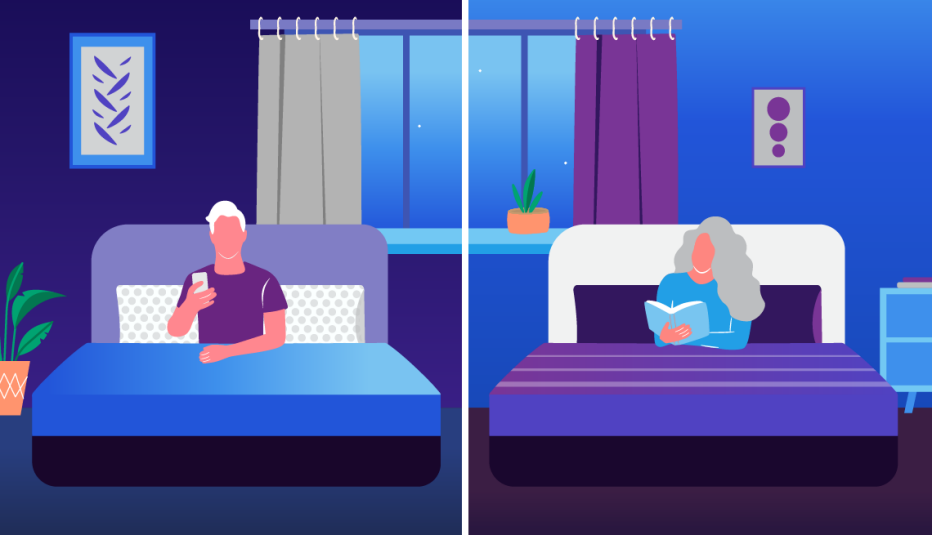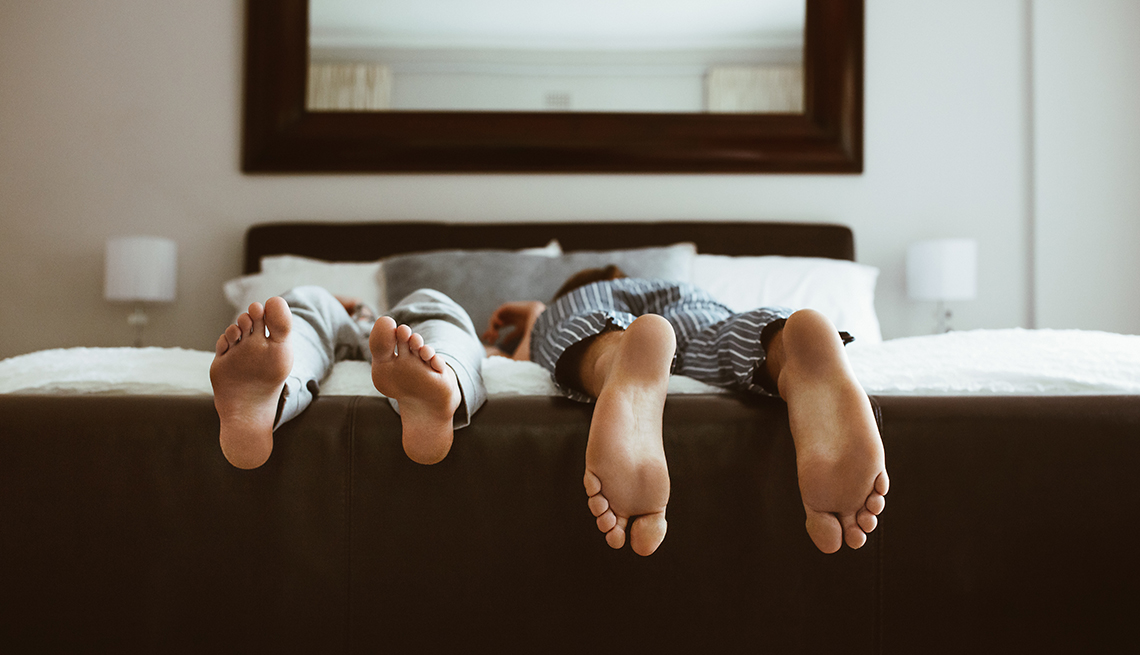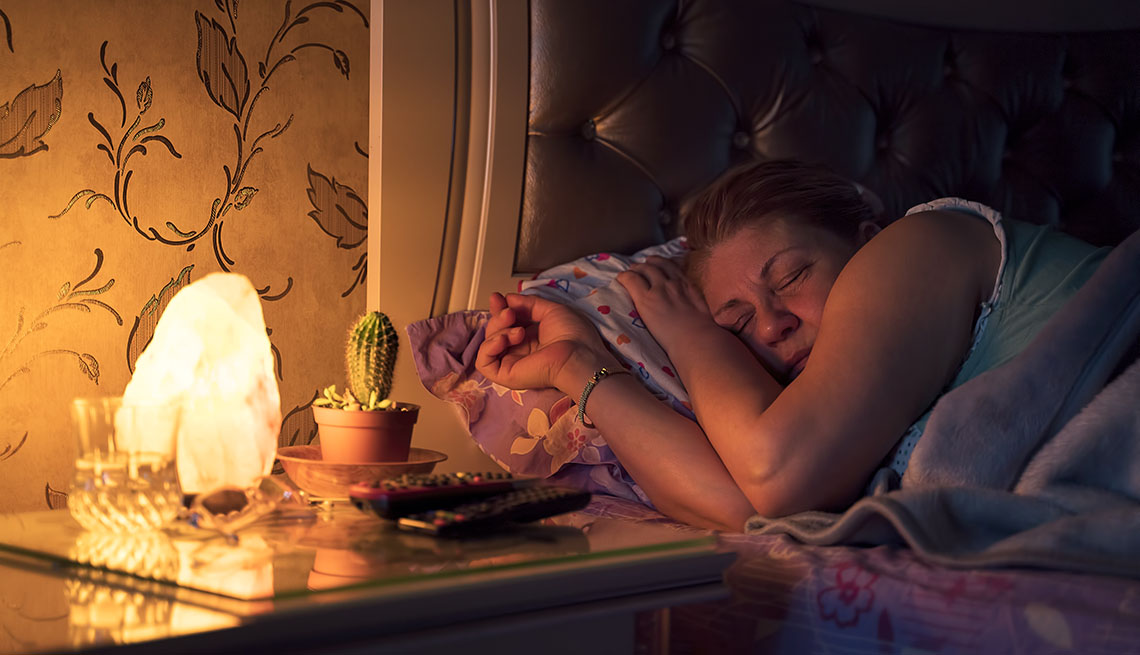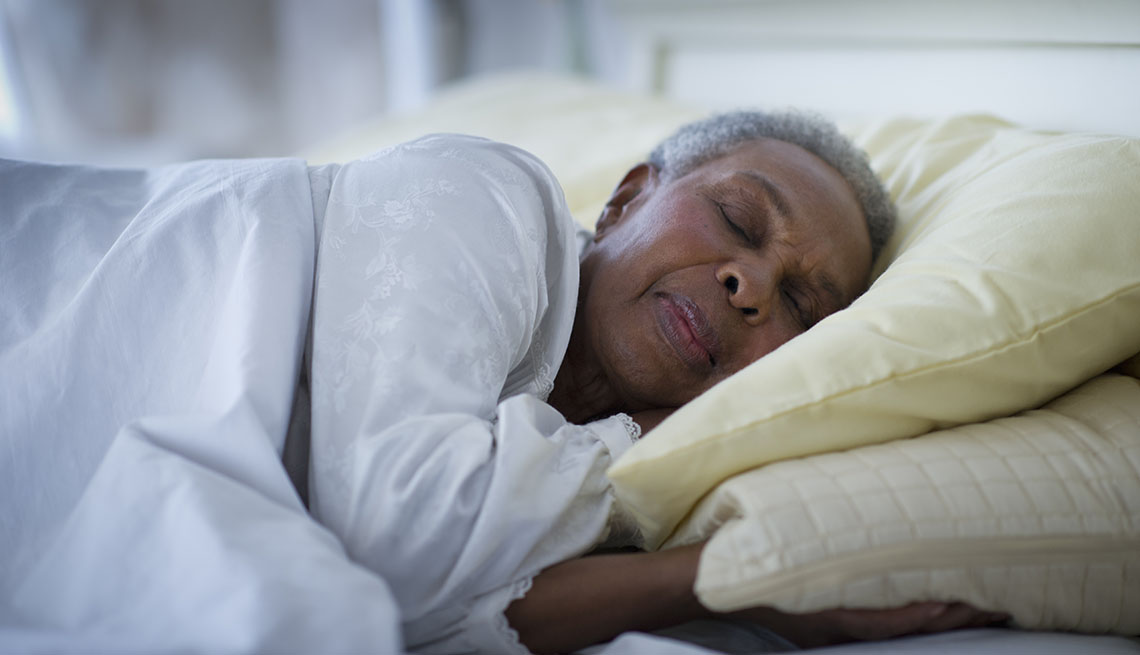AARP Hearing Center


He snores too loud. She twists and turns all night. These are just two reasons couples often greet the day unrested and, because sleep and mood are so closely intertwined, increase their odds of being at odds.
Some try to resolve differences by sleeping in separate bedrooms. But will that improve a relationship — or introduce strife? Some experts say separate bedrooms can strengthen a relationship since everyone is better rested. But others worry that it can put distance between a couple.
The practice of couples sleeping apart is fairly common. In fact, there’s a term for the practice: “sleep divorce.”
But Anna Marie Boyd, a licensed professional counselor in Houston, says spending the night in separate bedrooms doesn’t have to have a negative connotation. “Society has a framework for what things should look like, and there’s a lot of black-and-white thinking about partners who don’t sleep together,” says Boyd. “But really, there’s a lot of gray area and a lot more involved.”
More than half of adults who started and maintained sleeping in separate beds reported the arrangement improved their sleep quality, according to a January 2023 SleepFoundation.org survey. Those surveyed also documented getting an extra 37 minutes of sleep each night.
“Couples often find that after deciding to sleep separately, they’re able to have more meaningful connections during the day and are stronger” together, says Shelby Harris, a clinical psychologist and director of sleep health for Sleepopolis, an online sleep resource. This “conscious decision … helps to let go of any resentment related to poor sleep and can lead to an overall happier and healthier life for both partners.”

























































































More From AARP
5 Ways to Improve Your Marriage Without Talking About It
Use actions instead of words to boost connection
Discover the Secrets to Long-Lasting Love
Couples reveal the big things and small gestures that have kept them bonded